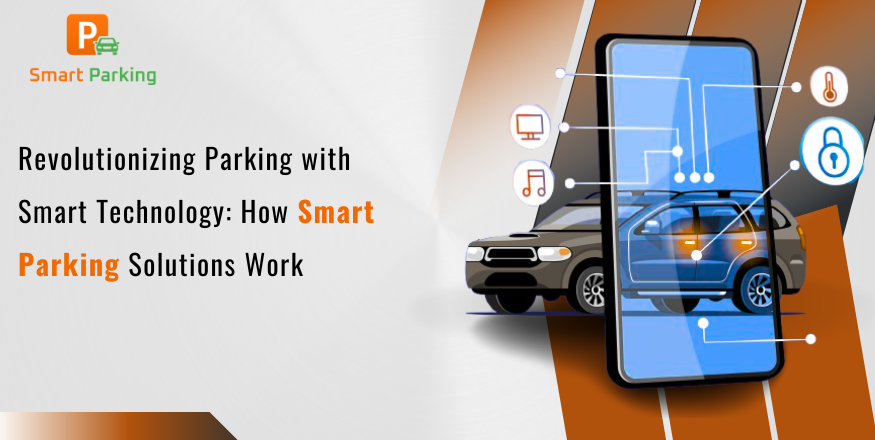In today’s fast-paced urban environments, finding a parking spot can often feel like a frustrating scavenger hunt. Traffic congestion, wasted fuel, and increased pollution are direct consequences of inefficient parking management. Fortunately, smart parking solutions are transforming the way cities handle parking by leveraging cutting-edge technology. we believe embracing smart technology is crucial for creating sustainable, efficient, and user-friendly urban spaces. Let’s explore how smart parking solutions work and why they are revolutionizing parking worldwide.
What Are Smart Parking Solutions?
Smart parking solutions refer to systems that use Internet of Things (IoT) devices, sensors, and data analytics to streamline the parking experience for drivers and operators alike. By providing real-time information on parking availability and automating payment and monitoring processes, these technologies reduce the time spent searching for parking and optimize space usage. Smart parking is a key component of smart city initiatives aiming to enhance urban mobility and reduce environmental impacts.
How Do Smart Parking Solutions Work?
1. Sensor-Based Detection
The backbone of smart parking systems is the deployment of sensors installed in individual parking spots or entry/exit points. These sensors detect whether a parking space is occupied or vacant by using technologies like magnetic field sensors, ultrasonic detectors, or cameras with AI capabilities. The data collected is instantly relayed to a centralized cloud platform.
2. Real-Time Data Analytics
Once occupancy data is gathered, advanced analytics platforms process this information to provide real-time updates on parking availability. This data can be analyzed further to understand parking trends, predict peak demand times, and identify underutilized areas, enabling dynamic pricing models and better space allocation.
3. User Guidance and Mobile Apps
To help drivers, smart parking systems offer intuitive mobile applications or integration with in-car navigation systems. These apps display real-time availability of parking spots nearby, guiding users directly to free spaces. This reduces the frustrating and time-consuming process of circling the block, thus cutting down on emissions and congestion.
4. Automated Payment Processing
Smart parking also streamlines payment. Contactless payments via mobile apps, RFID cards, or digital wallets make paying for parking fast and hassle-free. Some systems even allow automatic billing based on parking duration, removing the need for physical tickets or meters.
5. Integration with Urban Infrastructure
Smart parking systems can seamlessly integrate with broader urban management technologies like traffic control, public transit systems, and environmental monitoring. This holistic approach helps cities manage traffic flow more effectively and supports sustainable transportation goals.
Benefits of Smart Parking Solutions
- Reduced Traffic Congestion: Drivers spend less time searching for parking, resulting in smoother traffic flow and fewer traffic jams.
- Lower Environmental Impact: Decreased idling and circling reduce fuel consumption and greenhouse gas emissions.
- Improved User Experience: Real-time information and convenient payment options enhance driver satisfaction.
- Operational Efficiency: Automation cuts down on staffing costs and manual management errors.
- Revenue Optimization: Dynamic pricing adjusts fees based on demand, maximizing revenue for parking operators.
- Real-World Impact: Examples of Smart Parking
Cities worldwide are embracing smart parking technology with impressive results. For instance, New Delhi is deploying sensors and AI to manage over 150 parking facilities, enabling real-time monitoring and cashless payments. Similarly, Toulouse in France uses magnetic sensors to detect free parking spaces, relaying information directly to drivers’ smartphones. These initiatives not only improve urban mobility but also contribute to sustainable city development.
Challenges to Consider
Despite its many advantages, smart parking implementation faces hurdles such as high upfront costs, data privacy concerns, and the need for reliable technology integration. User adoption can also be a challenge, requiring education and incentives to encourage drivers to embrace new systems.
The Future of Parking Is Smart
As urban populations continue to grow, the pressure on existing parking infrastructure will only intensify. Smart parking solutions offer a scalable, efficient way to meet this demand while promoting environmental sustainability and enhancing the urban experience. At jiSECURE, we are committed to supporting cities and businesses in adopting smart technologies that create safer, cleaner, and more connected communities.














Share this post on: